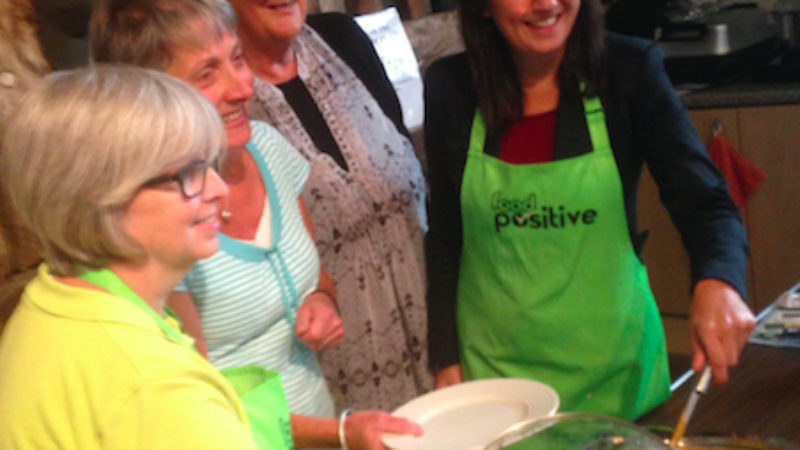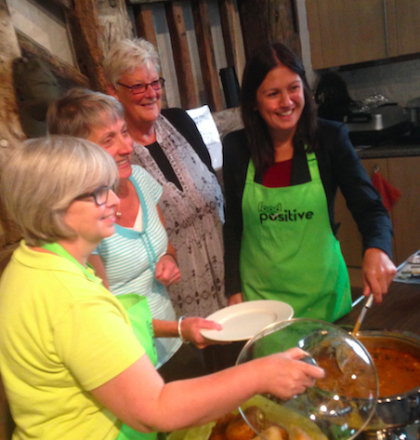
Lisa Nandy is undoubtedly one of the most interesting MPs from the 2010 intake – and it’d be remiss of me not to start by admitting that I’m a fan.
In fact, one of the first things I did when joining LabourList back in 2010 was to commission the Wigan MP to write about the experience of being a new member of Parliament.
Reading the pieces back four years later, that still feels like one of the better decisions I’ve made. They’re shot through not only with the basic humanity one hopes for in an MP, but they’re also written with the knowing eye of someone who has arrived in Westminster and knows all is not well there – politically and culturally.
In her first column, Nandy reported setting up camp in Jon Cruddas’s office before she had one of her own, alongside another 2010 MP – Chuka Umunna. Yet whilst Umunna (who worked alongside both Nandy and Cruddas in Compass) has ascended to the Shadow Cabinet with remarkable ease, Nandy has remained – disappointingly in my view – outside it. She spent time working with young people (building on the expertise she’d gained before entering Parliament), and last year was given the sideways move to take on Civil Society in the Cabinet Office. But it’s one she’s relished, expertly tackling minister Nick Hurd and Brooks Newmark head on, before his recent fall from grace.
Over the summer, Nandy invited me to visit a project in her Wigan constituency – one which matched both her portfolio, and her connection to her local area. The Fur Klempt café (fur klempt means “very hungry” in Wiganese) was providing hot meals for anyone who needed them, using food salvaged from local supermarkets, run by volunteers and costing only what people were able or willing to pay.

This was the “Big Society” in action – but as Lisa told me, the Big Society isn’t a Tory idea:
“You come to somewhere like Wigan, and the people running that project there are members of the Labour Party, you go to the local library and the people who helped to saves it are members of the Labour Party, you go to the local credit union and the people who run it are members of the Labour Party…in towns like this, the Labour Party is a huge driving force for good, and helps create the social glue that holds the town together.”
This idea of a Labour Party that exists outside Westminster and is rooted in our communities is clearly one that appeals to Nandy. She’s clearly someone who’s sceptical about the way Westminster and party politics work, so I asked her why she joined the Labour Party in the first place:
“I joined when I was a teenager, mainly because I grew up in Manchester in the late eighties. You couldn’t avoid being political. You could see the direct impact of the government’s policies…I thought it was really important that people fought back, and with a collective voice.”
Yet despite that, she’s no starry eyed party triballist:
“I’m not in the Labour Party because I just love the Labour Party. I’m in the Labour Party because I think that it’s the best hope for social justice this country has ever had…We’re only as good as what we do for people, what we stand for and what we deliver.”
The difference between Wigan and Westminster – and Nandy’s reaction to the two, could not be more stark. Meeting Nandy in her constituency office she’s a whirling dervish of activity, making calls, chatting to local businesses people, laughing and joking with volunteers. Often MPs can feel beaten down by the nature and drudgery of Westminster politics – and the feeling that it’s hard to make a difference. I ask her what she thinks of it after four years:
“I still think “what on earth is going on?” when I’m in Westminster – pretty much every day. But I think if you don’t then there’s something wrong. Because if you’re sat in the chamber and there’s people prancing about in tights with swords and you think that’s normal, then something has gone badly wrong in your life.”
So what has she learned?
“I think you learn about how you can make change – because that’s what you go there for. I’ve got no interest in running anything, but I came into parliament because I thought there were things that badly needly to change.”
That desire to make change is clearly reflected in Nandy’s absorption in her constituency work, where the difference you can make as an MP is both direct and visible. Nandy admits that she’d rather spend more time in Wigan than Westminster if she had the choice:
“One of the real problems with how Westminster works, is that we spend so much time with each other and relatively little time by comparison with the people who we represent. I think the trouble is what you end up with is groupthink, and I don’t think that’s good for the country.”
She admits that she thinks she’s better at her job when she lives “a bit more normally”. But Wigan is clearly more than just her constituency, it’s central to her politics too:
“So although people get really frustrated with politics, they don’t need to look any further than here to see what the point of the Labour Party is.”
The volunteers at the café – Labour members amongst them – are evidently pleased to have their local MP along to give their project her stamp of approval. But far from this being a photocall, Nandy wants to get stuck in. She’s quickly handed an apron and tasked with serving food. Not wanting to be left out, I’m handed a notepad and am told to keep track of how many people are eating that day, and how much. I quickly lose count, as dozens of people stream through the doors of the church hall.
Distracted by my failings, I notice a bookshelf in the corner containing a selection of second hand books. I notice the Great Gatsby sat on a lower shelf, yet the poverty faced by many of those served by the Fur Klempt café is probably closer to the next book on the shelf – a Catherine Cookson – than the happenings of Fitzgerald’s West Egg.
As we leave the Fur Klempt café after a couple of hours, one of the volunteers grabs Nandy, laughs and says “Don’t be going round here telling people you’ve been working” – an allusion to the reputation of lazy MPs. It’s the first bit of cynicism I’ve heard all day, and the laughter speaks volumes. The people here know how hard Nandy works for them.
Before leaving Wigan, Nandy takes me round the corner for “the best chips in Wigan”. She’s not wrong. I didn’t realise how much I’d missed chips with gravy until the brown stuff was oozing from the edge of my plate. As I scoff a sizeable portion, Lisa talks with Howard – the ebullient owner of the chip shop. She tells me that “the gap between what we talk about in Westminster and what we talk about in Wigan is massive” and that her job “is to go to Westminster and drag what matters from Wigan into that arena.” The conversations I hear her have over the course of a single day reinforce that ten-fold.
As I’m about to leave, the conversation returns to where it began. Why be a Labour MP? What is the Labour Party for?
“I think the Labour Party’s job – now and in the future – is about giving hope to people. It’s so easy to play politics on the basis of fear, but the Labour Party is the only vehicle for hope in this country in parliamentary politics. That’s our job, and it’s a really difficult task when people are so disillusioned with politics and politicians – but every single person has to do their bit….in the end, when it’s all over, I’d like to say I did a bit of that.”
That’s a task and an ambition that is both small and large at the same time – to give hope is a small aim, but to do so at a time of widespread hopelessness is not. As I stand on the platform at Wigan North Western station in the late afternoon sunshine flicking through my notes, a quote from Nandy jumps out at me:
“When Labour works, when it does brilliant, interesting, important things – it’s because it’s rooted in communities and real life experience.”
Lisa Nandy is brilliant, interesting and important, because she’s rooted in a community and in real life experience. At a time when politics is facing a crisis of legitimacy, people like Nandy are going to be more important than ever.




More from LabourList
‘Labour won’t stop the far right by changing leaders — only by proving what the left can deliver’
‘Cutting Welsh university funding would be economic vandalism, not reform’
Sadiq Khan signals he will stand for a fourth term as London Mayor